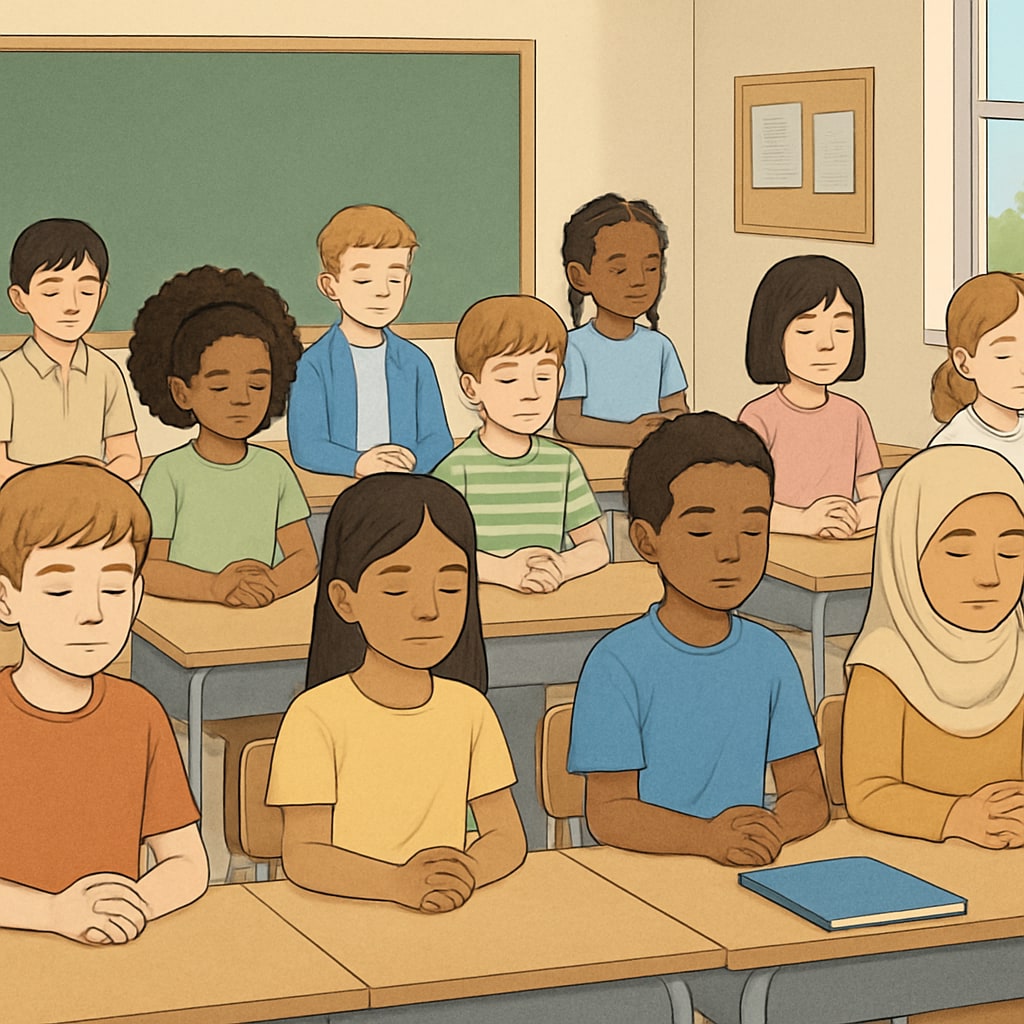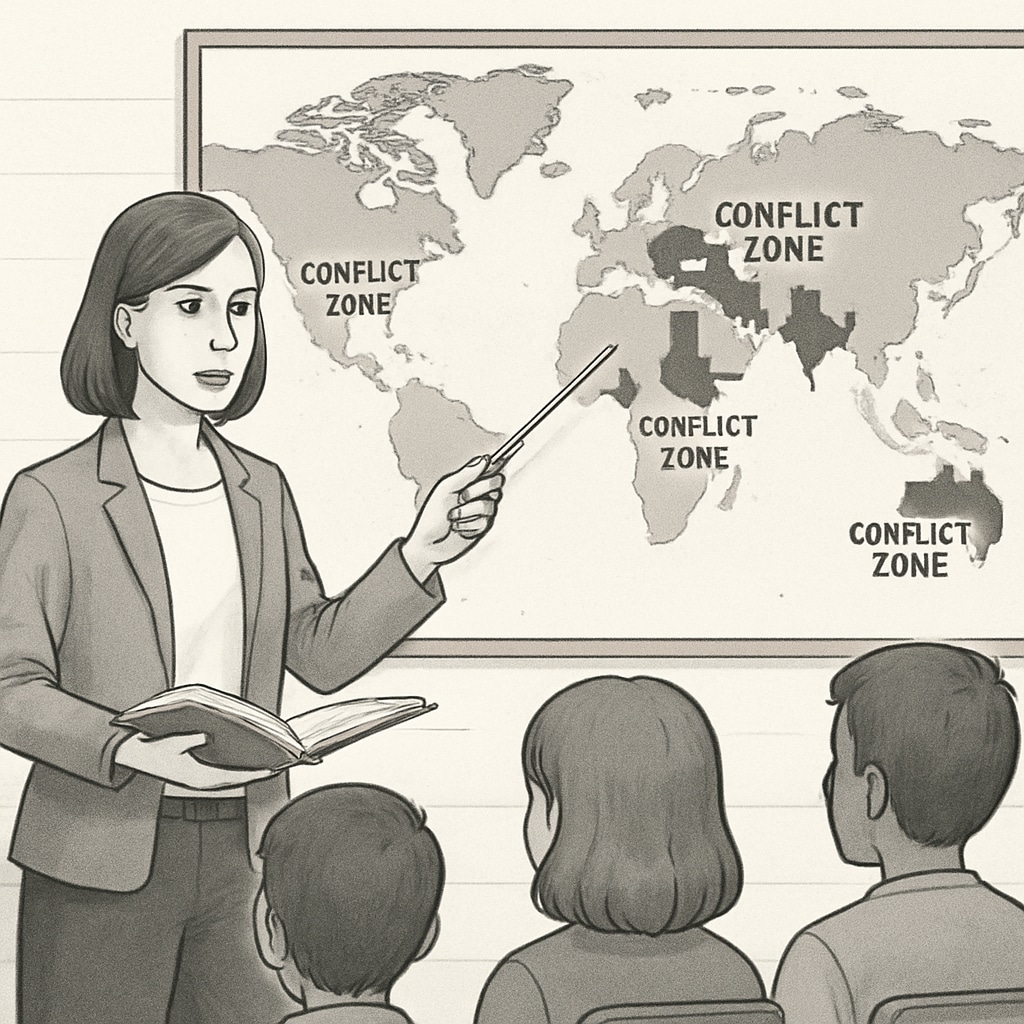The decision of some schools to shift initiatives for “Gaza mourning” into a broader, generalized commemoration for “global war victims” has sparked debates about educational responsibility and the role of institutions in addressing specific crises. This approach, which many perceive as an act of “generalization,” raises questions about how education systems tackle pressing humanitarian issues, including the ethical implications of avoiding direct acknowledgment of tragedies like genocide. The debate invites us to reflect on whether schools should lead students in confronting real-world crises or shield them through overly neutral narratives.
The Generalization Debate: Diluting the Specific for the Universal
When schools chose to replace a Gaza-specific mourning event with a commemoration for all global war victims, the move was met with mixed reactions. Proponents argued that globalizing the narrative promotes inclusivity and prevents political polarization. However, critics viewed this shift as a form of erasure, diluting the gravity of the Gaza crisis and avoiding the uncomfortable truths of targeted atrocities, sometimes described as genocide. Educational institutions, critics argue, risk losing credibility when they fail to acknowledge the specificity of suffering in favor of vagueness.

For example, consider the ongoing humanitarian crisis in Gaza, which has drawn international attention due to its scale and impact. By generalizing mourning practices, schools may inadvertently sidestep the opportunity to educate students about the roots of such crises, including geopolitical histories, systemic inequalities, and the devastating effects of war. As a result, students may miss the chance to develop a nuanced understanding of the world’s conflicts.
Educational Responsibility: To Inform or to Neutralize?
The role of education in addressing current events has always been fraught with complexity. On one hand, schools are tasked with fostering critical thinking and global awareness. On the other, they must navigate the sensitive terrain of political neutrality. The controversy over Gaza-specific mourning highlights this tension. Should schools take bold stances on humanitarian crises, or should they remain neutral to avoid alienating any part of their communities?

Critics of the generalization approach argue that it reflects a broader trend of risk aversion among educational institutions. By avoiding direct acknowledgment of politically sensitive issues, schools may inadvertently perpetuate ignorance or indifference. For instance, understanding the term “genocide” and its historical applications requires confronting uncomfortable truths about human behavior and systemic violence. Avoiding such topics does little to prepare students for the complexities of the modern world.
On the other hand, proponents of neutrality suggest that schools are not the place for political activism. They argue that by keeping discussions broad, schools can maintain unity among diverse student bodies. However, this perspective raises questions about whether neutrality is truly neutral or simply a means of avoiding accountability.
Finding the Balance: Courage, Truth, and Empathy
So, how can schools navigate this challenging terrain? The answer may lie in embracing three core principles: courage, truth, and empathy. First, schools must have the courage to confront difficult topics head-on, even when they are politically charged. This involves creating spaces where students can explore the complexities of issues like war and genocide without fear of censorship or retaliation.
Second, educators must prioritize truth. This means providing accurate, context-rich information about global conflicts, including their historical and systemic causes. For example, teaching students about the Gaza crisis requires a balanced examination of historical events, geopolitical dynamics, and the human impact of war.
Finally, empathy should be at the heart of any educational approach to current events. By encouraging students to consider the lived experiences of those affected by crises, schools can foster a sense of global citizenship and responsibility. Activities like storytelling, guest speakers, and multimedia presentations can help humanize distant conflicts, transforming statistics into relatable narratives.
In conclusion, the controversy over generalizing Gaza mourning into a global commemoration highlights the delicate balance schools must strike between neutrality and advocacy. By embracing courage, truth, and empathy, educational institutions can empower students to engage with the world’s challenges in meaningful and informed ways.
Readability guidance: This article uses concise paragraphs and clear transitions to enhance readability. It avoids excessive passive voice and long sentences, ensuring accessibility for a broad audience.


